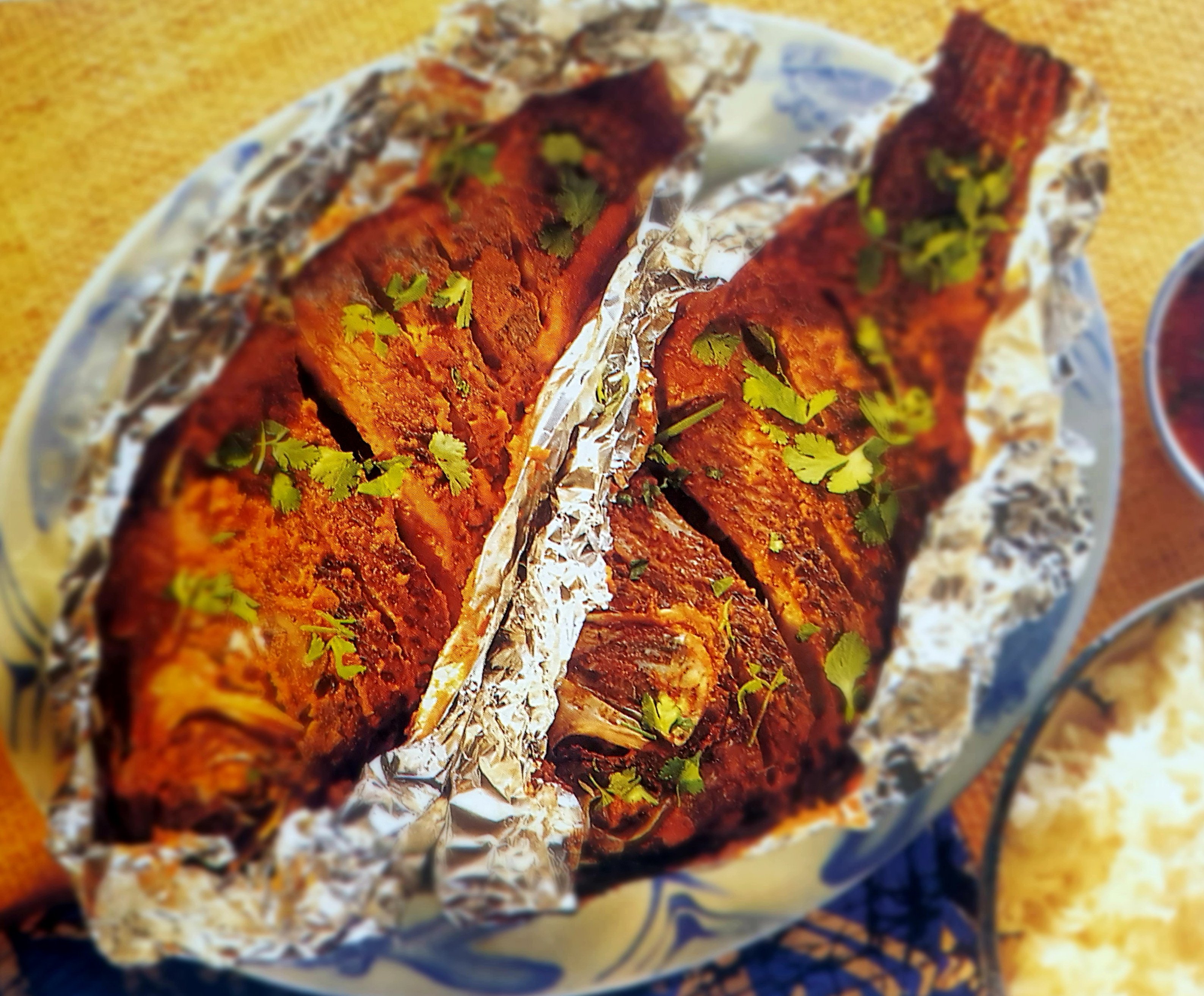Fish with a cashew ginger marinade

What you need to know:
- Review. Nuts contain concentrated protein and fats save for chestnuts that contain very little starch. However, it is for their essential oils that carry the flavor and for the textural contrast for which we treasure them so much, writes A. Kadumukasa Kironde II.
In order to capture the sweet and spicy flavour and aroma of this much loved Indonesian favourite dish, marinated fish are wrapped in parcels before baking which ensures that the flavors are nicely preserved. When they are unwrapped at the table, your guests will marvel at the delicious aroma that emanates from within the foil enveloped fish.
Nuts
When cooking with nuts, whether they are seeds, like pecans and walnuts; fruits like lychees or tubers like tubers, like peanuts---- nuts contain concentrated protein and fats save for chestnuts that contain very little starch. However, it is for their essential oils that carry the flavour and for the textural contrast for which we treasure them so much.
The best way to store nuts whenever possible, is to keep them in their shells. This protects them from light, heat, moisture as well as exposure to air these being factors that tend to cause rancidity in the shelled product. The difference in the keeping time for shelled pecans may range from 2 months at about 70d FH, to as long as a year in a freezer. Hence, if nuts are already shelled we best advise you to store them tightly covered in a cool dark and dry place or in a freezer. Unsalted nuts have longer storage life as opposed to salted ones, which tend to rancidity. Refrigerate after opening. Some nuts such as pecans and Brazil including Ugandan nuts, are more easily shelled if boiling water is poured over them and they are allowed to stand in it for 15 to 20 minutes. Be sure to discard any kernels that appear to be moldy, shriveled or dry, as they may prove to be bitter or rancid.
Marinades
As for marinades, one should never underestimate their power and potency. Sadly, these aromatic tenderizing liquids are easily abused and misused. All marinades contain varied amounts of seasonings which can range from oil, lemon while an acid is always essential. Therefore, ideally speaking, any marinade container ought to be of glazed ceramic glass or an impervious metal like stainless steel. Less marinade is needed to cover if the meat is placed in a container that is just large enough to hold it comfortably. During the marination process, use a wooden mulawo to turn the meat now and again.
Marinades are a means of spreading the flavour through immersion and the soaking period may vary from a mere few minutes to several hours and even a couple of days. Stronger and spicier may be devised to make bland food more appetising and tasty, but the most important function of a marinade is to tenderize tough meats.
Last but not least and what is not known by many, marinades may be cooked or uncooked. In the event that the soaking is to exceed more than 12 hours, the cooked marinade more effectively imparts their flavours to food. The liquid should be cooked in advance and thoroughly chilled before the food is immersed. The amount of vinegar should be reduced slightly if the meat is to be marinated longer than 24 hours. The effects of marinating are hastened by higher temperatures but so is the danger of bacterial activity. Refrigerate any foods in their marinade if the immersion period indicted is one hour or more.
Method:
1. Slash the fish 3 – 4 times on each side with a sharp knife and set aside
2. Grind the cashew nuts shallots or onions, ginger, garlic and chili into a fine paste in a mortar and pestle or in a food processor. Add the vegetable oil, shrimp paste or fish sauce and sugar and season to taste with salt and pepper. Blend, then add the tamarind sauce, tomato ketchup and lime juice and blend again.
3. Cover both sides of the fish with the paste and set aside covered in the fridge for up to 8 hours or overnight to allow the flavours to thoroughly mingle and soak into the fish.
4. When you are ready to bake the fish, wrap in foil securing the parcels carefully. Bake in a preheated oven at 180Dc/350DFH, Gas mark 4 for 30 – 35 minutes.
Ingredients
Serves 4
2 Tilapias, sea bass or pomfret, scaled and cleaned. All in all, they should amount to about 1 kg or thereabouts in weight.
150g/1 ¼ cups raw cashew nuts
2 shallots or 1 medium onion, finely chopped
2 garlic cloves, crushed
1 small piece of fresh ginger, finely chopped
2 small fresh chilies, seeded and finely chopped and more if you so desire
2 – 3 tbsp vegetable oil
1 tbsp shrimp paste which you are unlikely to find in Uganda but no sweat. Fish sauce will do nicely and if that is not available then use soy sauce.
2 tsp sugar
2 tbsp tamarind sauce
2 tbsp good quality tomato ketchup
Juice of 2 limes
Salt and pepper to taste
Aluminum foil paper




